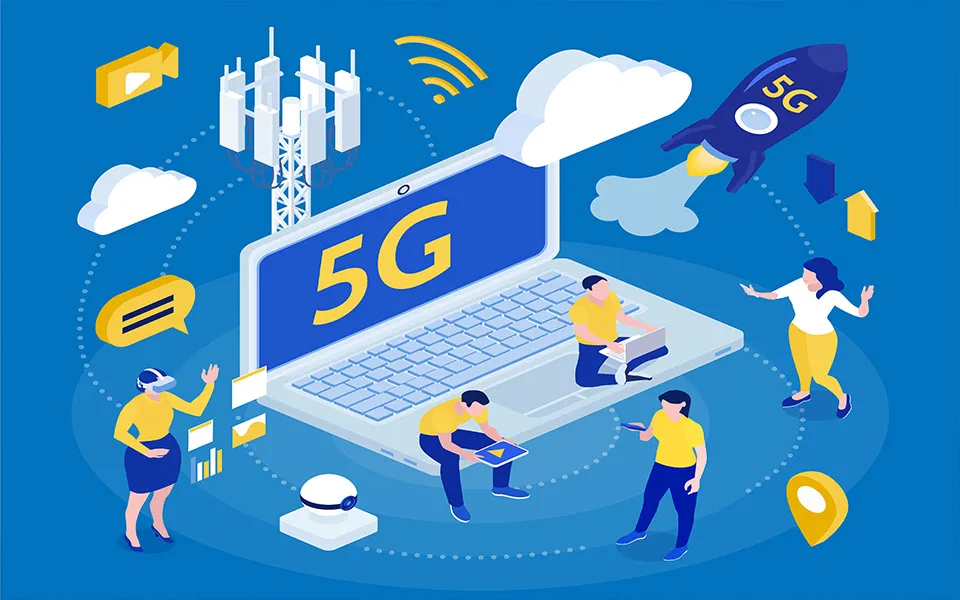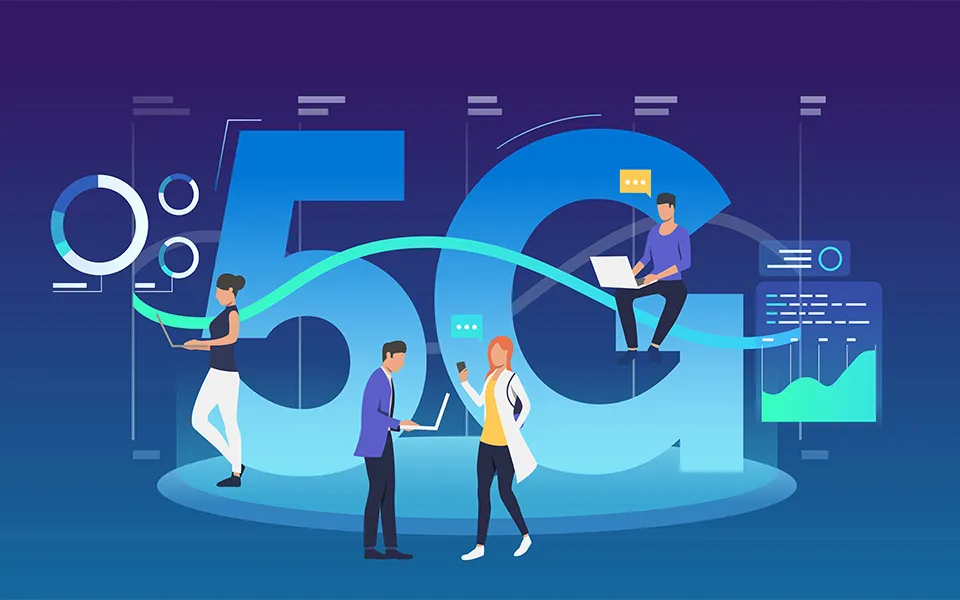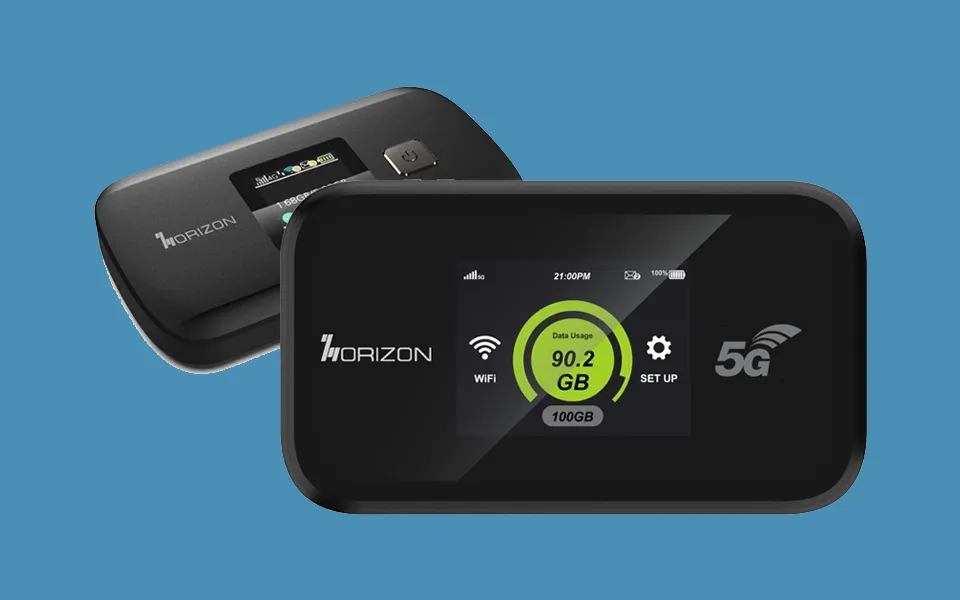Smartphones Hotspot Tethering and MiFi Devices
In today’s digital age, staying connected to the internet is paramount. Whether for professional duties, academic pursuits, or personal use, the ability to access the internet on-the-go has become a necessity. Mobile phones and MiFi devices are two prominent solutions offering portable internet connectivity, each with unique features, advantages, and limitations. This article delves into a detailed comparison of mobile phone hotspots/tethering and MiFi devices, analyzing their respective pros and cons, and providing insights into their functionalities. Furthermore, it explores Horizon-powered MiFi devices, highlighting their distinct benefits.

Mobile Phone Hotspots/Tethering
Definition and Functionality
Mobile phone hotspots, also known as tethering, allow users to share their smartphone’s internet connection with other devices such as laptops, tablets, and other smartphones. This functionality turns the mobile phone into a wireless router, enabling multiple devices to connect to the internet via the phone’s cellular data connection.
Types of Tethering
- Wi-Fi Tethering: The most common method, Wi-Fi tethering creates a personal Wi-Fi network using the phone’s data connection.
- Bluetooth Tethering: This method uses Bluetooth to share the internet connection, typically consuming less power than Wi-Fi tethering but offering slower speeds.
- USB Tethering: A wired method where the phone connects to another device via USB, often providing the fastest and most stable connection among the three types.
Pros of Mobile Phone Hotspots
- Convenience: As most individuals carry smartphones, the ability to create a hotspot anywhere without additional devices is highly convenient.
- Cost-Effective: There is no need to purchase a separate device since the functionality is built into the smartphone.
- Flexibility: Mobile hotspots can support various types of tethering, offering flexibility depending on the user’s needs and available devices.
- Ease of Use: Setting up a mobile hotspot is straightforward and user-friendly, typically requiring just a few taps on the smartphone.
Cons of Mobile Phone Hotspots
- Battery Drain: Using a mobile phone as a hotspot significantly drains its battery, which can be a major downside during prolonged use.
- Limited Data Plans: Many mobile data plans have limits or throttling policies that may restrict hotspot usage, leading to potential overage charges or reduced speeds.
- Heat Generation: Prolonged tethering can cause the smartphone to overheat, potentially affecting performance and longevity.
Performance Constraints: The number of devices that can connect simultaneously is limited, and the internet speed can degrade with multiple connected devices.
MiFi Devices
Definition and Functionality
MiFi devices are portable wireless routers that provide internet connectivity by accessing cellular networks. These dedicated devices create a personal Wi-Fi hotspot, similar to mobile phone tethering, but with distinct differences in performance and functionality.
Types of MiFi Devices
- Standard MiFi Devices: These are standalone devices that connect to cellular networks to provide a Wi-Fi hotspot. They are typically battery-powered and designed for portability.
- Advanced MiFi Devices: These models may offer additional features such as better battery life, support for more simultaneous connections, and enhanced network capabilities like 5G support.
Pros of MiFi Devices
- Dedicated Connectivity: MiFi devices are designed solely for providing internet access, often resulting in more stable and reliable connections compared to mobile phone hotspots.
- Battery Life: These devices usually have larger batteries optimized for prolonged hotspot use, mitigating the rapid battery drain seen in smartphones.
- Higher Device Limits: MiFi devices can often support more simultaneous connections than mobile phone hotspots, making them ideal for group or family use.
- Performance Optimization: With features such as dual-band Wi-Fi and support for advanced cellular technologies, MiFi devices can offer superior performance and faster speeds.
Cons of MiFi Devices
- Additional Cost: Purchasing a MiFi device incurs an extra cost beyond the existing smartphone and data plan expenses.
- Separate Data Plan: MiFi devices typically require their own data plans, which can lead to higher overall costs.
- Device Management: Carrying an additional device can be less convenient compared to the all-in-one solution provided by a mobile phone hotspot.
Initial Setup: Although generally straightforward, the initial setup of a MiFi device can be more complex than activating a mobile phone hotspot.
Horizon-Powered MiFi Devices
Horizon Powered MiFi devices represent an evolution in mobile internet technology, offering a range of models designed to meet diverse user needs. These devices leverage Horizon technology to deliver superior connectivity solutions, with models supporting 5G, 4G LTE, and CBRS (Citizens Broadband Radio Service) for enhanced performance and flexibility.
Key Features
- Advanced Network Support: Horizon-powered MiFi devices come in various models that support the latest cellular technologies, including 5G for ultra-fast speeds, 4G LTE for widespread coverage, and CBRS for private network capabilities.
- Enhanced Security: These devices are equipped with built-in VPN capabilities and advanced encryption protocols, providing robust security for safe browsing and data transfer.
- Extended Battery Life: Optimized power management systems in Horizon-powered MiFi devices ensure extended usage without frequent recharging, making them ideal for long trips and heavy usage scenarios.
- User-Friendly Interface: Intuitive interfaces and management apps allow users to easily monitor data usage, manage connections, and configure settings, enhancing user experience and control.
Advantages of Horizon-Powered MiFi Devices
- Superior Connectivity: Whether using 5G for blazing-fast speeds, 4G LTE for reliable connectivity, or CBRS for private networks, these devices provide faster and more reliable internet access, even in challenging environments.
- Enhanced Device Management: Advanced management features allow users to control and monitor multiple devices with ease, ensuring optimal performance and security across different network technologies.
- Scalability: Horizon-powered MiFi devices can support a larger number of simultaneous connections, making them suitable for both personal and business use, with options tailored to different network needs.
- Innovative Features: These devices often include innovative features such as integrated SIM cards, global roaming capabilities, and customizable data plans, catering to a wide range of connectivity requirements.
By offering a variety of models with different network capabilities, Horizon-powered MiFi devices provide versatile and high-performance solutions for mobile internet access.
Conclusion and Closing Remarks
In conclusion, both mobile phone hotspots and MiFi devices offer valuable solutions for portable internet connectivity, each with its unique set of advantages and disadvantages. Mobile phone hotspots provide a convenient and cost-effective method for sharing internet access on-the-go, ideal for casual or light usage. However, the limitations in battery life and data constraints may pose challenges for more demanding users.
On the other hand, MiFi devices, particularly those powered by Horizon technology, present a robust alternative with dedicated connectivity, enhanced performance, and support for multiple devices. These features make MiFi devices an excellent choice for users requiring reliable and high-speed internet access, whether for personal, professional, or travel purposes.
Ultimately, the choice between a mobile phone hotspot and a MiFi device depends on the user’s specific needs, usage patterns, and budget considerations. By understanding the strengths and limitations of each option, users can make informed decisions to ensure seamless and efficient internet connectivity wherever they go.








